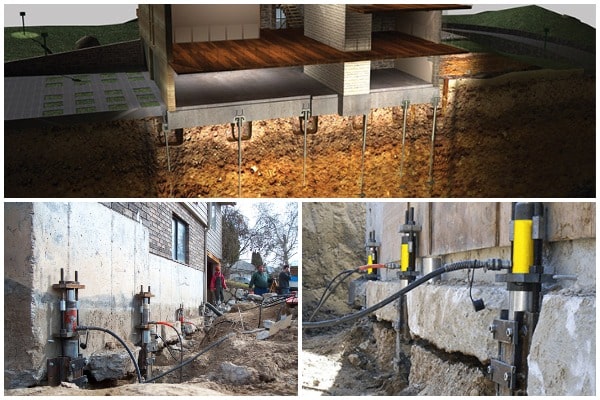
Foundation is the key to a successful and lasting building. Whether it’s your house, office space, or anything else, a strong and healthy foundation helps keep everything secure and stable. However, like any other structure, foundations can begin to weaken over time due to wear and tear or even natural disasters.
To ensure that your foundation remains strong throughout the year, here are 18 things you can do:
1) Inspect regularly – Checking on the condition of your foundation should be done at least once per year. Look for cracks or signs of movement which can indicate potential problems. If you notice any issues with the foundation, contact a professional to assess the situation before it worsens.
2) Check for water damage – Pay attention to any water pooling around the foundation. This can signify that water is seeping into the soil and weakening your foundation. Inspect for any leaks in pipes or drains and repair them as needed to prevent further damage.
Also Read: 3 Signs Your Charleston Home Is in Need of Foundation Repairs
3) Ensure gutters are working correctly – Gutters help keep water away from your foundation by directing it away from the house. Check regularly to ensure they’re doing their job, and clean them if necessary.
4) Plant trees strategically – Trees can be beneficial when planted at least 10 feet away from the house, but they can also cause problems if planted too close. The roots of a tree can reach far below the surface and interfere with a foundation over time.
5) Keep an eye on the weather – Foundation damage can be caused by extreme weather conditions such as heavy rains, strong winds, and icy temperatures. Be aware of changing weather patterns in your area, and watch for any signs of potential foundation problems.
6) Add waterproofing materials – Waterproofing materials like tar paper or plastic sheeting can help protect your foundation from water seeping into the soil. Make sure to install these materials correctly to guarantee their effectiveness.
7) Monitor drainage systems – Poor drainage systems can put extra pressure on a foundation due to the accumulation of water around it. Ensure all drains are working correctly and clear when they become clogged with debris.
8) Inspect the soil – The condition of your foundation depends on the soil around it. Check for any soil composition or movement changes that can indicate potential problems with your foundation.
9) Keep an eye out for pests – Pests like termites and carpenter ants can cause severe damage to a building’s foundations if left unchecked. Regularly inspect for signs of these creatures and take steps to get rid of them as soon as possible.
10) Seal cracks and holes – Even small cracks or holes in walls, floors, or ceilings can indicate a bigger problem with your foundation. Have these sealed immediately before they become worse over time.
11) Check for mold – Mold can be a sign that there is water damage to your foundation. This should be addressed immediately to prevent further problems in the future.
12) Secure loose items – Loose or wobbly furniture, appliances, and other items in your home can cause extra stress on your foundation over time. Ensure these are securely fastened to the floor or wall they’re attached to.
13) Consider reinforcing your foundations – Depending on how extensive the problem with your foundation is, you may need to reinforce it with additional materials like steel rods or concrete blocks. Consult an expert if this is necessary for your situation.
14) Understand when you need professional help – While some foundation issues can be addressed by yourself, it’s best to consult a professional if the problem is beyond your expertise. They can assess your situation and advise you on the best course of action.
15) Schedule regular maintenance – Regular maintenance should be done on the foundation to ensure that it remains strong and stable for years to come. Make sure to inspect for any issues, check gutters and drains, monitor weather patterns, etc., at least once per year. This will help prevent any problems from escalating in the future.
16) Check for water damage – Water can cause a lot of damage to a foundation, so it’s important to check for any signs of moisture or water seepage. If you notice anything out of the ordinary, address the issue immediately.
17) Use appropriate landscaping techniques – Planting shrubs and trees too close to your house can put extra pressure on the foundation over time. Make sure they are planted at least 10 feet away from your home and that drainage is directed away from the building.
18) Check window seals – The sealant around windows should be checked regularly for any cracks that could allow moisture into your walls or floors. Have these sealed up immediately if you notice any issues.
These are just some of the ways in which you can make sure that your foundation remains strong throughout the year. Taking proactive steps now will help prevent costly repairs down the line, so don’t hesitate to take action when you notice any potential problems.